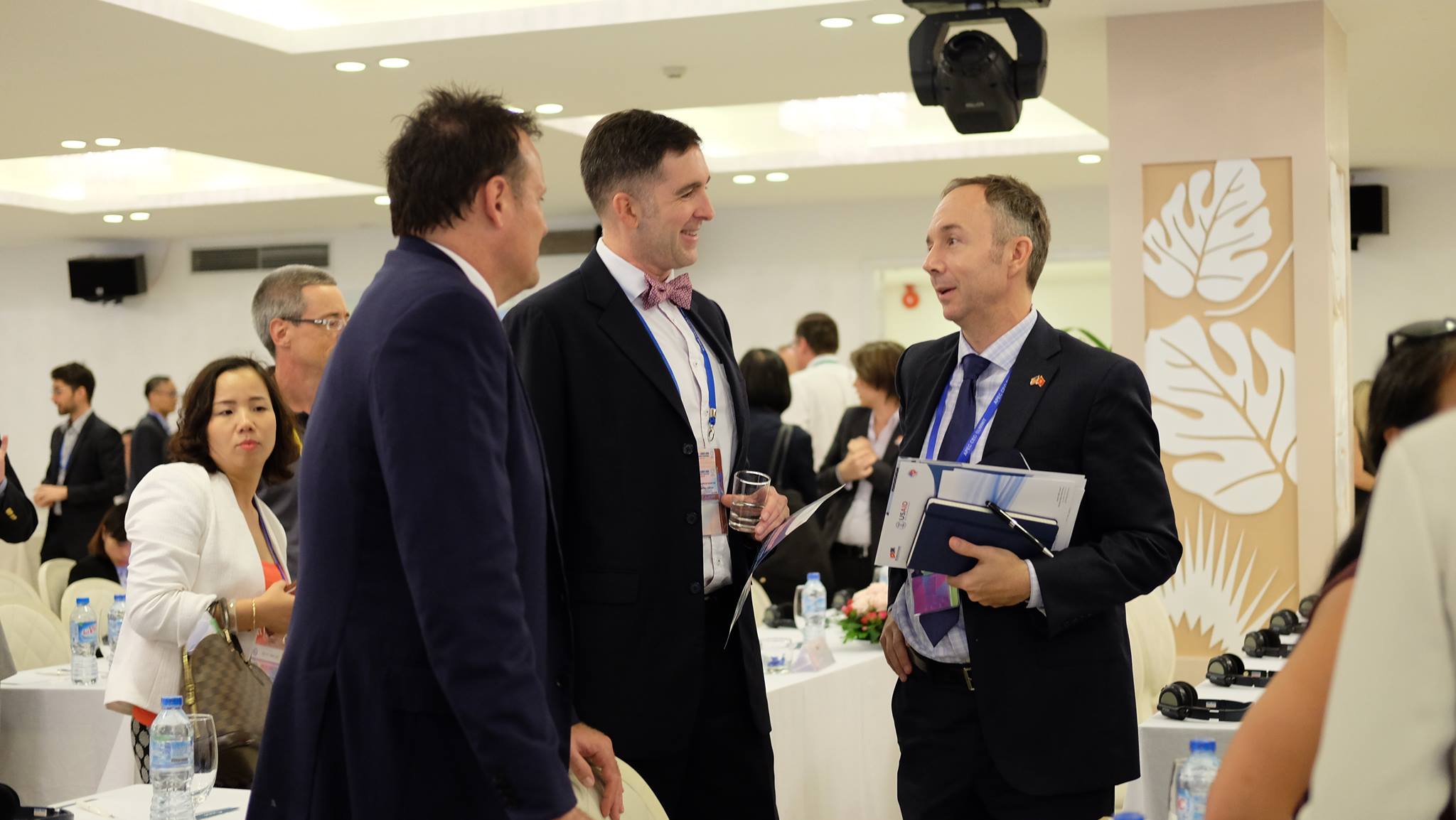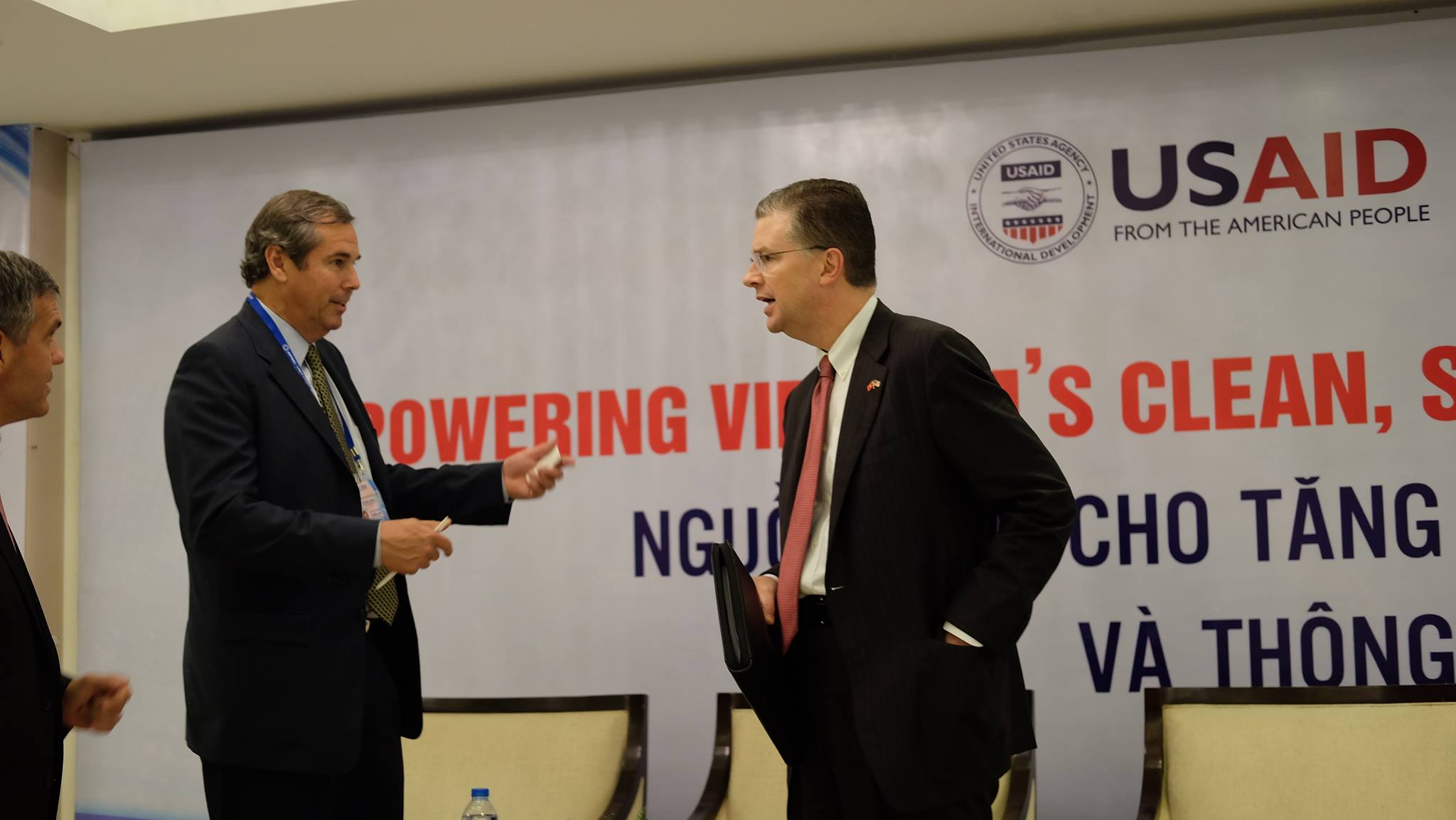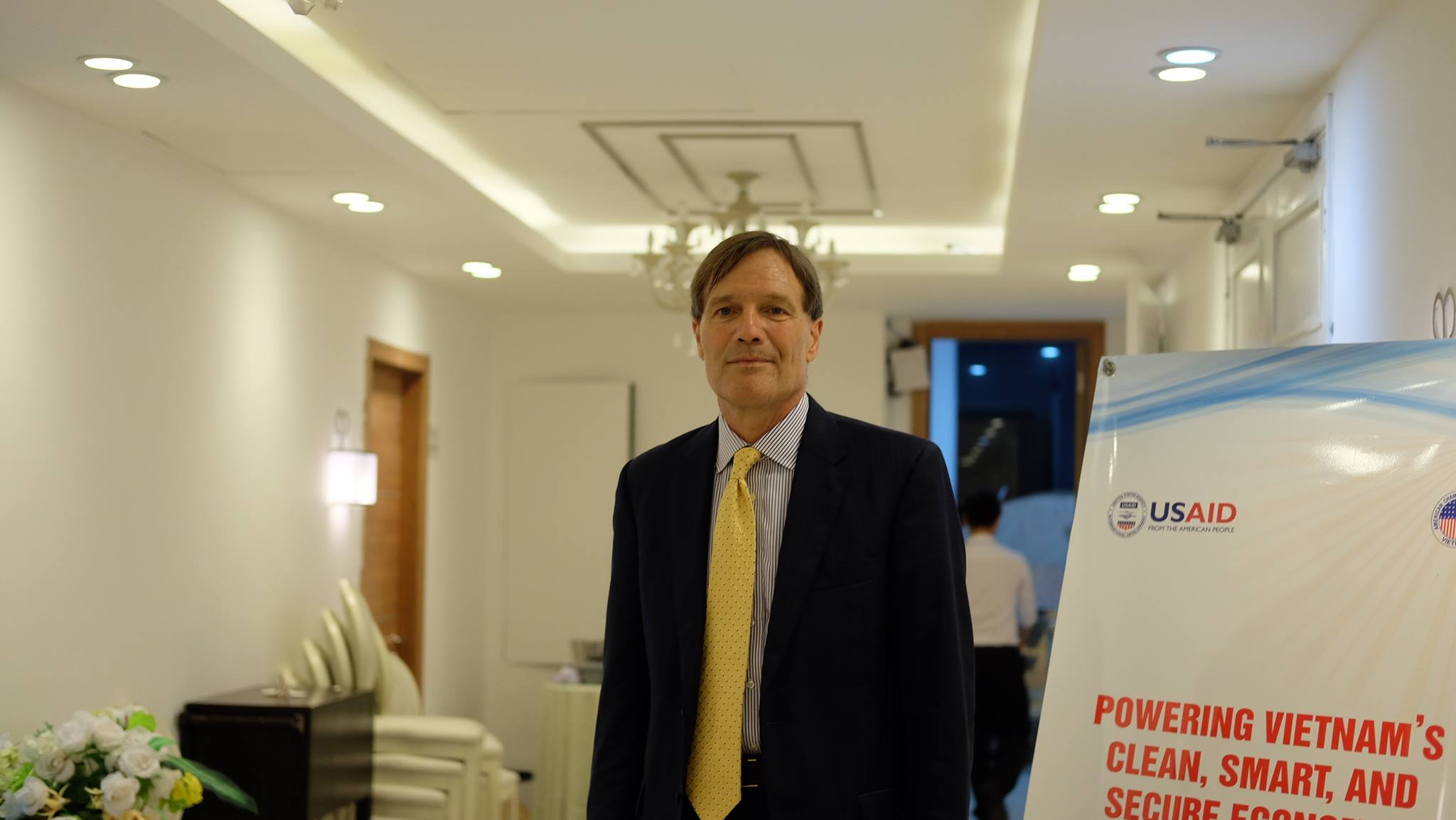US to support Vietnam’s direct power
purchase agreements for clean energy next year
The DPPA mechanism will also allow businesses to competitively
procure renewable energy in Vietnam
A mechansim allowing businesses in
Vietnam to directly close contracts to buy power at competitive
prices from renewable energy generators is expected to enter a pilot run
next year under a program backed by the U.S. Agency for International Development

Delegates talk
ahead of a USAID event in Da Nang, central Vietnam, on November 8, 2017.
Photo: Son Luong/Tuoi Tre News
The USAID and Vietnam’s
Ministry of Industry and Trade are working together to enable private sector
electricity buyers and renewable energy providers to enter into Direct Power
Purchase Agreements (DPPA).
The DPPA mechanism will allow
businesses to competitively procure renewable energy in Vietnam while also
creating new business opportunities for world-class clean energy
technologies, according to USAID.
An event was held on Wednesday on
the sidelines of the APEC CEO Summit in the central city of Da Nang to
celebrate a unique partnership of governments and the private sector in the
DPPA project.
Among the attendes were leading
executives from global businesses including ABB, Nike, and Citibank, who
affirmed their urgent need for expanded and simplified access to renewable
energy and pledged to work with Vietnam’s trade ministry and USAID to help
accomplish this goal.
Newly-appointed U.S. Ambassador to
Vietnam Daniel Kritenbrink also had his first meeting with local media since
taking the post earlier this month.
Asked why the DPPA is necessary when
businesses in Vietnam can now easily buy industrial electricity from EVN, the
country’s power giant, Michael Greene, USAID Mission Director for Vietnam,
said the mechanism will allow companies to enjoy constant power prices and
utilmately save power costs.
While EVN power price is as low as
7.5 U.S. cents per kWh for industrial buyers, Greene said the rate is
expected to rise to 13 cents per kWh by 2030. “By signing a long-term DPPA to
buy power from a clean energy generator, businesses can have a constant power
price in a long term,” he elaborated.
“The second thing is that by locking
in the price for renewable energy, such as solar, wind or biomass power, we
will have a lower price over the long term compared to the price charged by
EVN.”
The USAID Vietnam leader asserted
that the U.S. government and his agency are supporting Vietnam to develop the
DPPA because they believe the Southeast Asian country “needs clean energy to
power its incredible growth.”
“The DAPP allow companies, energy
suppliers and electricity buyers to have direct purchase contracts and reduce
the risks of those agreements,” he said.
Greene added that the DAPP will also
help Vietnam attract foreign investment from experienced companies worldwide
into the private energy sector.
Vietnam seeks to ramp up renewable
energy generation from solar and wind power to 1,650 megawatts (MW) by 2020
and to 18,000 MW by 2030, according to USAID.
Greene said USAID and Vietnam’s
Electricity Regulatory Authority are working to have the DPPA enter a pilot
run in 2018. Asked if there are any barriers that may prevent the pilot
program from getting started as scheduled, Greene said he does not see any
potential obstacles to the plan.
“The U.S. government has been
committed to moving forward with the project and so has the Vietnamese
authorities and you can see how businesses are eager for it at the event
today,” he told Tuoi Tre News.
Tuoi
Tre News
|
Thứ Sáu, 10 tháng 11, 2017
Đăng ký:
Đăng Nhận xét (Atom)


Không có nhận xét nào:
Đăng nhận xét